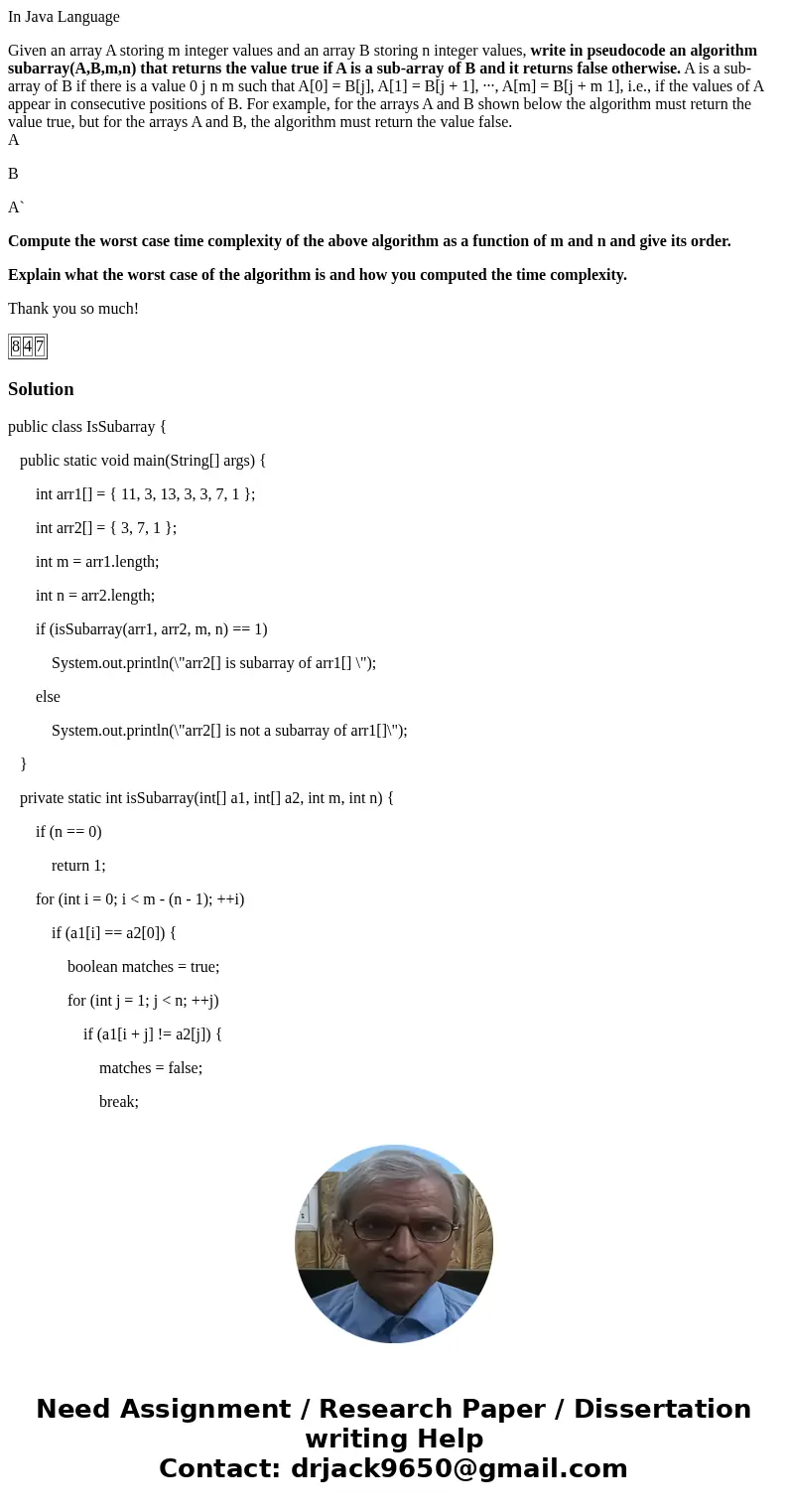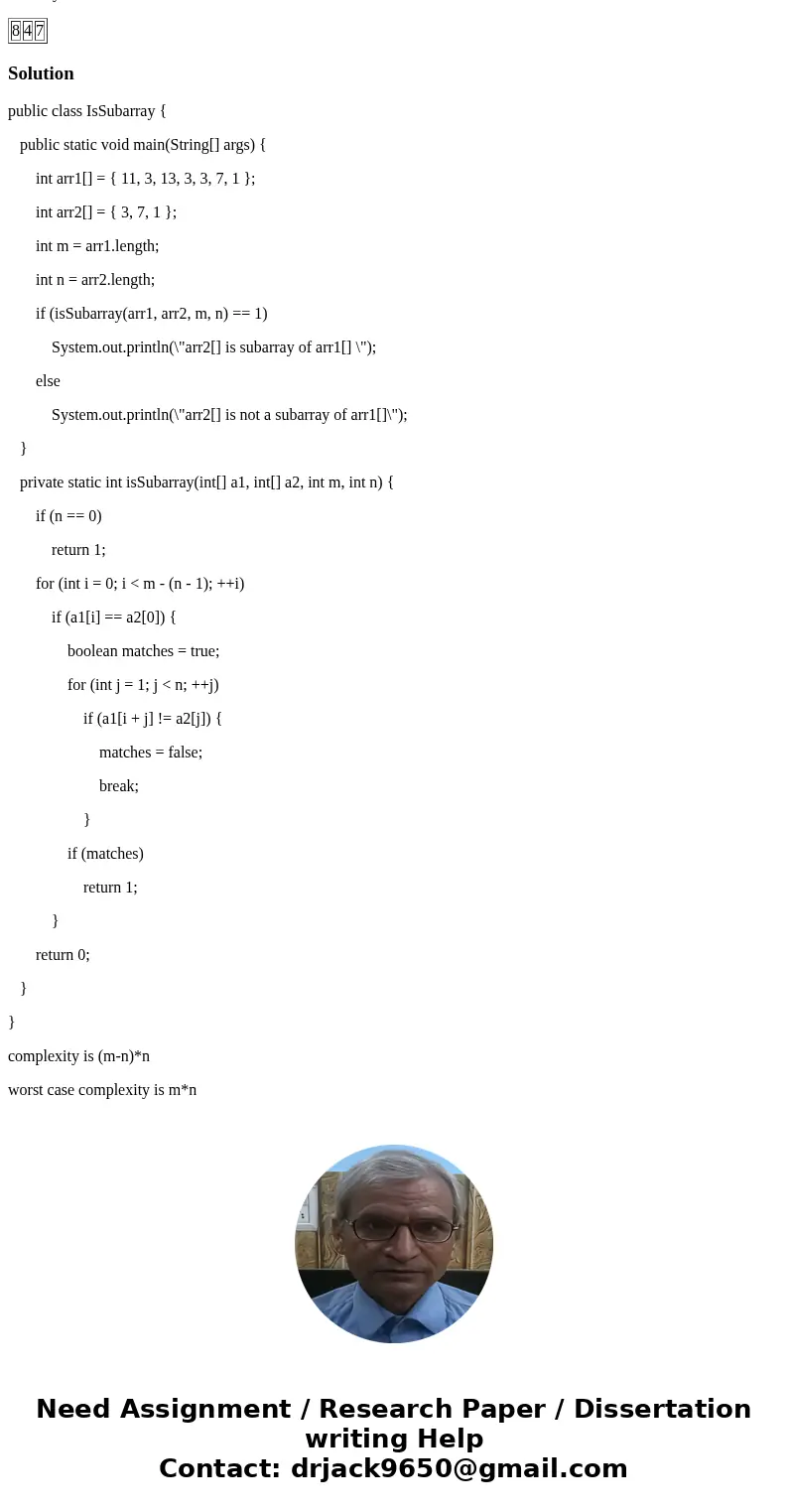In Java Language Given an array A storing m integer values a
In Java Language
Given an array A storing m integer values and an array B storing n integer values, write in pseudocode an algorithm subarray(A,B,m,n) that returns the value true if A is a sub-array of B and it returns false otherwise. A is a sub-array of B if there is a value 0 j n m such that A[0] = B[j], A[1] = B[j + 1], ···, A[m] = B[j + m 1], i.e., if the values of A appear in consecutive positions of B. For example, for the arrays A and B shown below the algorithm must return the value true, but for the arrays A and B, the algorithm must return the value false.
A
B
A`
Compute the worst case time complexity of the above algorithm as a function of m and n and give its order.
Explain what the worst case of the algorithm is and how you computed the time complexity.
Thank you so much!
| 8 | 4 | 7 |
Solution
public class IsSubarray {
public static void main(String[] args) {
int arr1[] = { 11, 3, 13, 3, 3, 7, 1 };
int arr2[] = { 3, 7, 1 };
int m = arr1.length;
int n = arr2.length;
if (isSubarray(arr1, arr2, m, n) == 1)
System.out.println(\"arr2[] is subarray of arr1[] \");
else
System.out.println(\"arr2[] is not a subarray of arr1[]\");
}
private static int isSubarray(int[] a1, int[] a2, int m, int n) {
if (n == 0)
return 1;
for (int i = 0; i < m - (n - 1); ++i)
if (a1[i] == a2[0]) {
boolean matches = true;
for (int j = 1; j < n; ++j)
if (a1[i + j] != a2[j]) {
matches = false;
break;
}
if (matches)
return 1;
}
return 0;
}
}
complexity is (m-n)*n
worst case complexity is m*n


 Homework Sourse
Homework Sourse